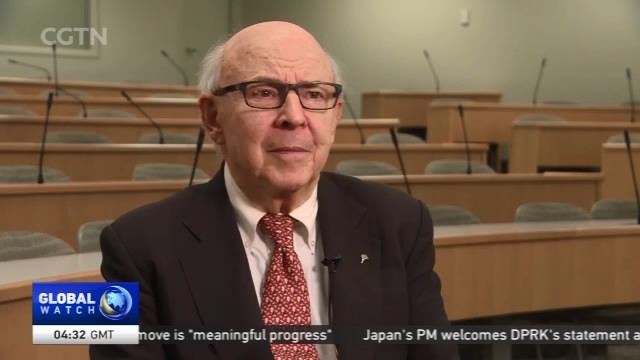
13:46, 21-Apr-2018
China-US Trade Tensions: Economists warn of dangers of trade war
02:59

The most notorious trade war in the United States history played out back in the 1930s. Triggered by Congressional passage of legislation known as the Smoot-Hawley Tariff Act, it is widely seen as having prolonged the Great Depression. And as Donald Trump considers enacting tariffs on imports from China, economic historians advise revisiting that time to get a better sense of the repercussions. Karina Huber has more.
The Smoot-Hawley Tariff Act implemented in 1930 came at a time when U.S. farmers were struggling. In the 1920s, hundreds of thousands of them went bankrupt. Some saw tariffs as the solution. But tariffs that were initially meant to protect U.S. agricultural products quickly spread to include over 20,000 imported goods.
RICHARD SYLLA, EMERITUS PROFESSOR NYU STERN SCHOOL OF BUSINESS "What started out as a method of helping the farmers, a measure to help the farmers, got turned into a sort of Christmas tree bill where everybody got a little something."
Ironically, economic historian Richard Sylla says that at the time, the United States had a trade surplus in agricultural products, meaning it exported far more than it imported.
RICHARD SYLLA, EMERITUS PROFESSOR NYU STERN SCHOOL OF BUSINESS "If you're the low-cost producer exporting a lot, tariffs don't do anything. They may make the farmers feel good and a politician who votes for it may get a few more votes but it's not really going to help the farmer."
What it did was make America's trading partners angry. They quickly responded with retaliatory tariffs. That had a massive impact on global trade and the U.S. economy.
MARIE ANNE MADEIRA, ASSISTANT PROFESSOR POLITICAL SCIENCE, QUEEN'S COLLEGE CUNY "So U.S. exports fell by 40 percent as a result of the retaliatory tariffs that our trading partners imposed. That crushed U.S. industries. At the same time, imports fell by about 40 percent as well. So, that was really harmful to U.S. consumers and it was also really devastating to our trading partners."
Professor Sylla says Smoot-Hawley did not cause the Great Depression, as it was already underway, but it did deepen it. For that reason, the incoming president Franklin Roosevelt became a champion of global free trade hoping to prevent another trade war from ever happening again.
KARINA HUBER NEW YORK "Karina Huber, New York Countries have traditionally enacted tariffs when their economies are doing badly but the talk of tariffs in the U.S. comes at a time when the U.S. economy is growing. Last year, U.S. GDP increased by 2.3 percent."
Sylla says the Trump administration's focus on tariffs is about politics. Much of Donald Trump's base consists of people who have been negatively impacted by globalization. But Sylla says retraining and social assistance programs are the solution. Not tariffs.
RICHARD SYLLA, EMERITUS PROFESSOR NYU STERN SCHOOL OF BUSINESS "If we actually get into a trade war, despite what President Trump says nobody really wins a trade war."
If the past is a prologue it might be time to get out the history books and take a closer look at what happened in the 1930s. Karina Huber, CGTN, New York.

SITEMAP
Copyright © 2018 CGTN. Beijing ICP prepared NO.16065310-3
Copyright © 2018 CGTN. Beijing ICP prepared NO.16065310-3